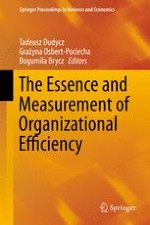2016 | OriginalPaper | Buchkapitel
Tripartite Collaborative Model Value Creation Experience of iEnterprise with Corporate and Nongovernmental Organization
verfasst von : Ilex K. K. Lam, D.B.A., M.B.A., FHKIoD
Erschienen in: The Essence and Measurement of Organizational Efficiency
Aktivieren Sie unsere intelligente Suche, um passende Fachinhalte oder Patente zu finden.
Wählen Sie Textabschnitte aus um mit Künstlicher Intelligenz passenden Patente zu finden. powered by
Markieren Sie Textabschnitte, um KI-gestützt weitere passende Inhalte zu finden. powered by
